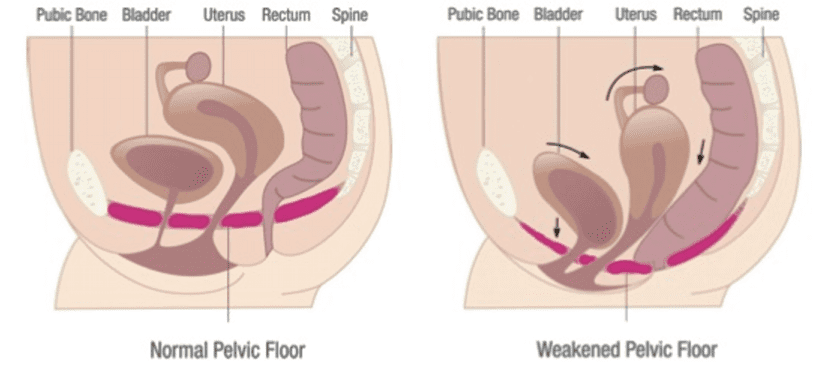Pelvic Floor Damage After Birth

It is also fairly common to experience pelvic prolapse following a particularly traumatic birth or after several pregnancies where the pelvic floor is severely weakened.
Pelvic floor damage after birth. The tailbone coccyx the triangular bone at the bottom of the spine sacrum sometimes giving birth can damage the bones in the ways described below. Use of forceps requires an episiotomy and is likely to result in damage to the pelvic floor. Is pelvic floor dysfunction hereditary. Distortion of the vagina or perineum area between the vagina and anus heaviness or dragging sensation in the vagina.
Pelvic floor dysfunction is the inability to control the muscles of your pelvic floor. Your pelvic floor is the group of muscles and ligaments in your pelvic region the pelvic floor acts like a. Your pelvic floor muscles and tissues can become strained during pregnancy especially if your labor was long or difficult. There are a number of problems specific to the pelvic floor muscles which can occur as a result of birth trauma.
As such many women will experience problems after childbirth due to weak pelvic floor muscles. Often women get experience pelvic floor dysfunction after they give birth. During a vaginal birth the baby needs to pass through the levator hiatus in the pelvic floor and the muscles connective tissues and nerves can be damaged in the process. Other symptoms include increased daytime frequency 8 or more times or increased night time frequency more than once.
Pelvic bone problems are painful. Epidural analgesia which increases the likelihood of having an episiotomy and an assisted birth with vacuum extraction or forceps. When your pelvic floor is weakened or damaged you may leak wee stress incontinence wind and more rarely poo faecal incontinence. The muscles in your pelvic floor become stretched during pregnancy and birth.
The weight of your baby hormones that loosen your tissues and the efforts of labour all put pressure on this part of your body. These issues are closely associated with birth related. Leaking urine urinary incontinence especially when coughing laughing sneezing or exercising stress urinary incontinence is the most well recognized urinary symptom of maternal pelvic floor damage. Pregnancy is a common cause of pelvic floor dysfunction.



















